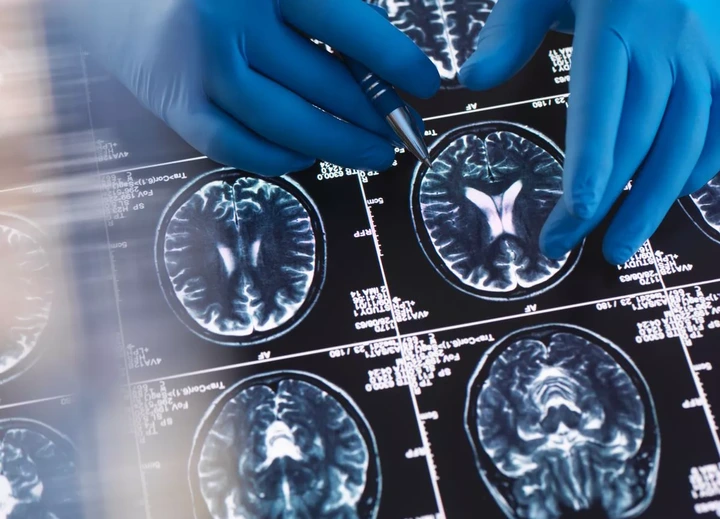Researchers discovered that examining patients' movements could effectively recognize '60% of all types of dementia'.

View pictures in App save up to 80% data.
Scientists have said how a person moves around could potentially lead to an Alzheimer's diagnosis. Pioneering research, led by Newcastle University, sought to improve existing methods used to diagnose different variants of the cognitive health condition.
This task focused on differentiating between Alzheimer's disease, which is the most prevalent type of dementia, and Lewy body dementia (LBD). Individuals with Alzheimer's typically show more pronounced memory deficits in the initial phases of the condition; however, their symptoms can frequently be mistaken for those of LBD, leading to potential mismanagement of treatment.
But in 2019, scientists found that analysing patient movements could accurately identify '60% of all dementia subtypes' in a remarkable first. At the time, Dr Ríona McArdle, lead researcher at Newcastle University’s Faculty of Medical Sciences, explained: "The way we walk can reflect changes in thinking and memory that highlight problems in our brain, such as dementia.

View pictures in App save up to 80% data.
"Accurately determining the specific type of dementia a person has is crucial for both healthcare professionals and researchers, as it enables patients to receive the most suitable treatment tailored to their needs at the earliest opportunity. The findings from this research are promising, indicating that walking may serve as a valuable addition to the diagnostic resources available for dementia."
"It is a key development as a more accurate diagnosis means that we know that people are getting the right treatment, care and management for the dementia they have." The study examined the walking patterns of 110 individuals, comprising 36 diagnosed with Alzheimer's, 45 with Lewy Body Dementia (LBD), and 29 individuals with normal cognitive function.
A significant finding was that individuals with LBD exhibited greater changes in their walking patterns and displayed 'asymmetrical' movements, in contrast to patients with Alzheimer's disease.
Estimates suggest that more than 944,000 people in the UK have dementia, including one in every 11 over 65 years old. LBD is thought to account for just 100,000 of these cases, according to Alzheimer's Research UK.
In light of the findings, Dr James Pickett, Head of Research at Alzheimer’s Society, also previously added: "In this well conducted study we can see for the first time that the way we walk may provide clues which could help us distinguish between Alzheimer’s disease and Lewy body dementia.

View pictures in App save up to 80% data.
"This study, supported by the Alzheimer’s Society, is groundbreaking in the field of dementia research. It holds potential for developing a new method to effectively diagnose various forms of dementia."
"Research holds the key to overcoming dementia and offers essential assistance to the 850,000 individuals currently affected by the condition in the UK. It is crucial that we persist in backing such promising research initiatives."
"We anticipate the emergence of more extensive and prolonged studies to confirm this method and illuminate the connection between an individual's walking pattern and the diagnosis of dementia."
NHS' list of potential early stage dementia symptoms
- Difficulty concentrating and planning tasks
- Sudden changes in personality or mood
- Confusion and memory loss
- Trouble finding the right words to say and not being able to understand conversations
The health organization advises: "If you notice that someone you care about is becoming more forgetful, suggest that they visit a general practitioner to discuss the initial indicators of dementia. It's important to note that memory loss can stem from various other causes as well."
"Nevertheless, if dementia is detected at an early stage, it may be possible to slow its progression in certain instances, allowing the individual to preserve their cognitive abilities for an extended period."










